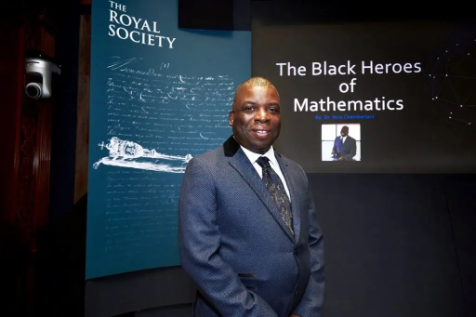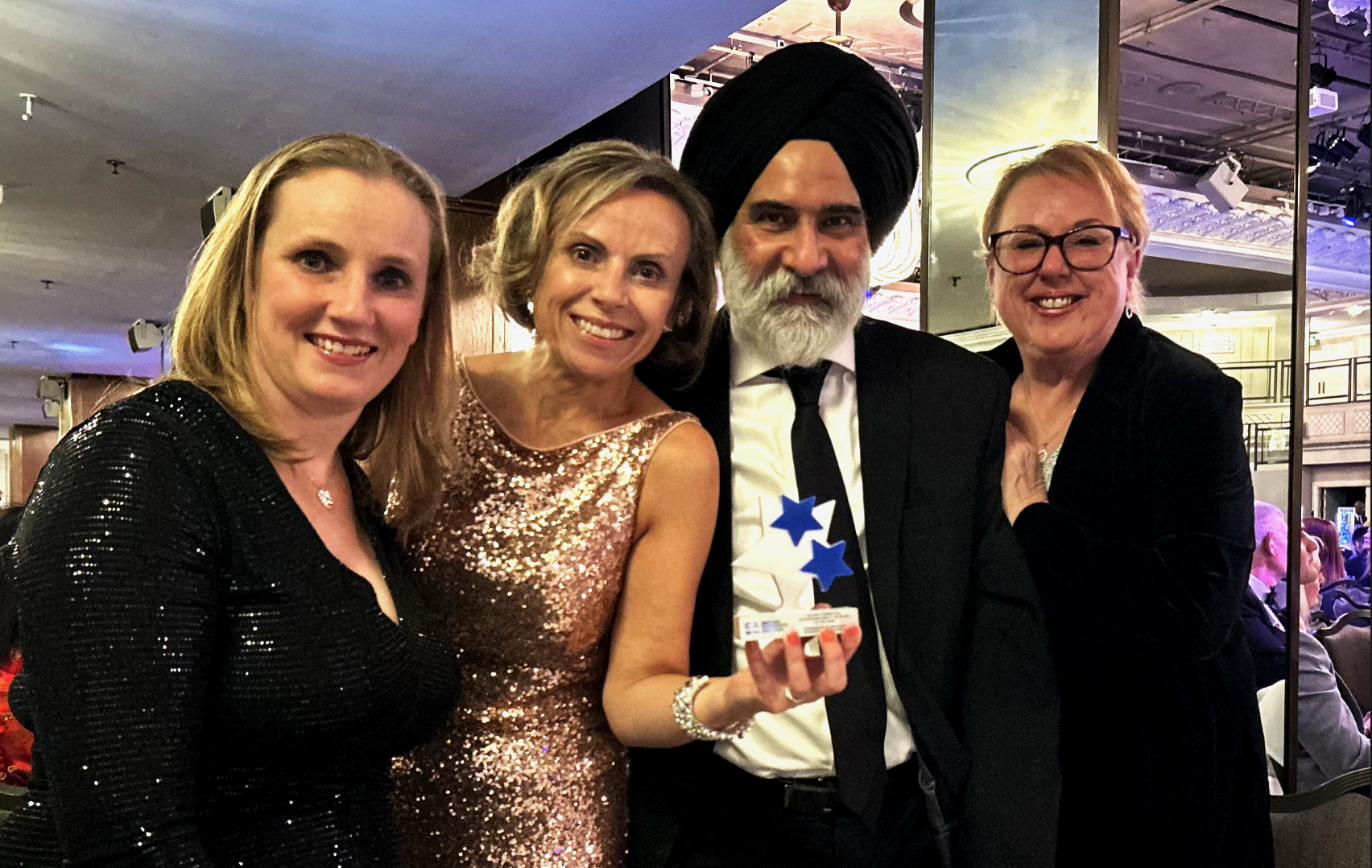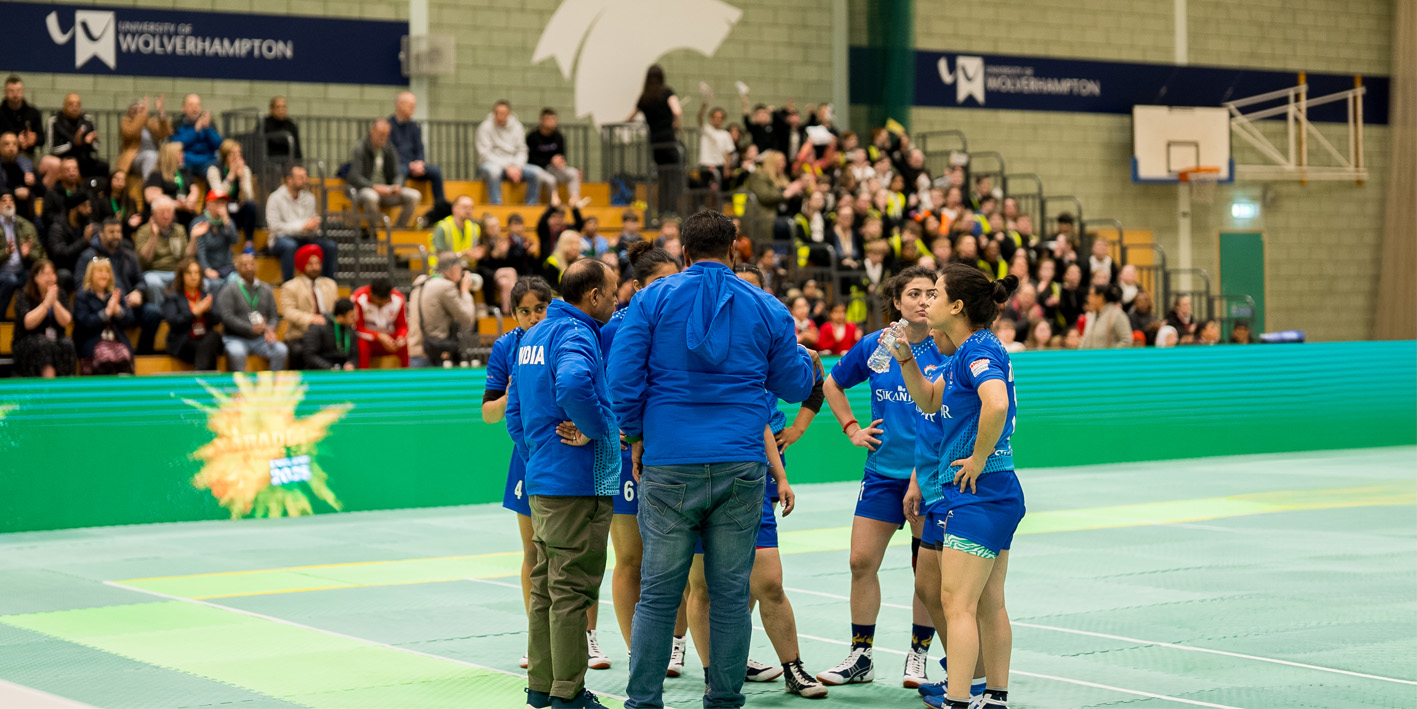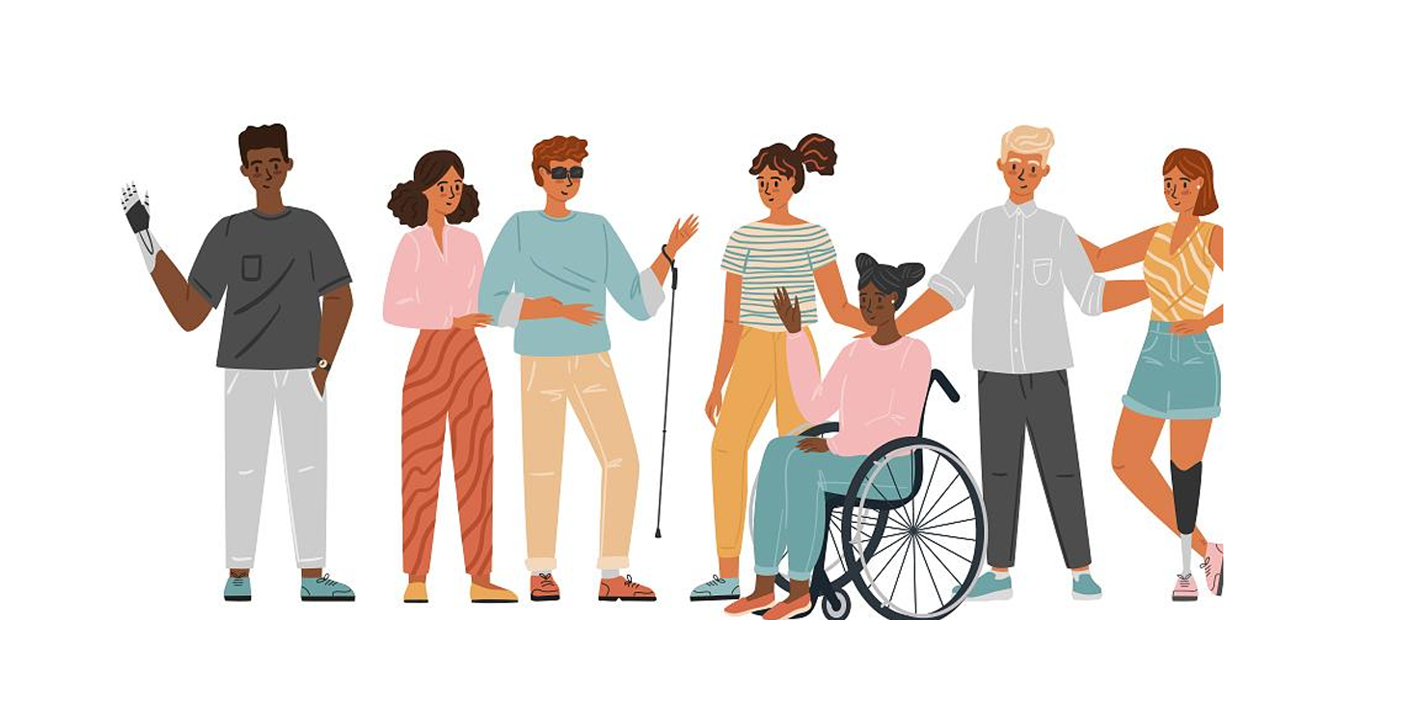
The Inequalities of Mathematics
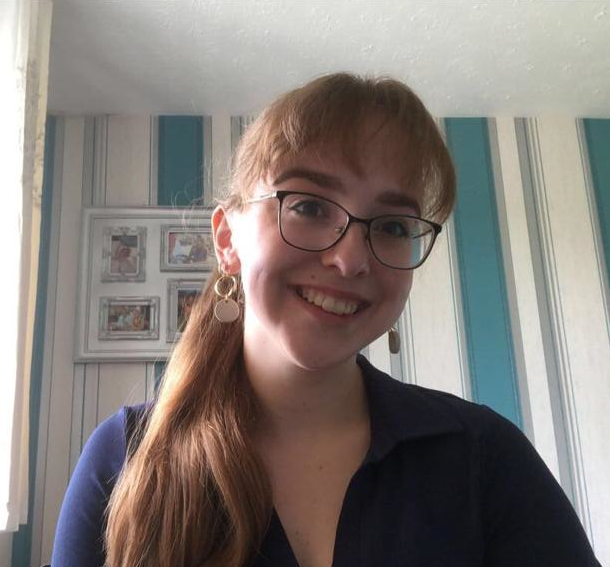
In conversation with Professor Nira Chamberlain OBE
Holly Langton, a recent Mathematics degree graduate who is now studying for a Master's degree in the subject at the University of Wolverhampton, focused her final year project on the “The Inequalities of Mathematics” which was more than a play on words. Her project sought to raise awareness of the contributions made to mathematics by mathematicians who have been persecuted or excluded due to their personal characteristics.
Holly, passionate about equality, diversity and inclusivity, interviewed the outgoing president of the Institute of Mathematics & its Applications (IMA), Professor Nira Chamberlain OBE, as part of her project.
Nira is a great friend to the University of Wolverhampton and he has contributed to many student focused initiatives over the years in collaboration with academics, Dr Liam Naughton & Dr Herbert Daly. He is world renowned for his work, The Black Heroes of Mathematics and is the President Elect of the Mathematical Association.
Find out all about what Holly & Nira had to say to each other by reading the full interview transcript below.
Holly: So, as we stated earlier, my project is concerned with inequality, recognising and celebrating the contribution of mathematicians who perhaps don’t get the recognition that they deserve. Therefore, to start us off, can you tell us a bit about yourself Nira, and your work around the Black Heroes of Mathematics?
Nira: OK well, my name is Nira Chamberlain. I'm the past president of the Institute of Mathematics, and its applications. I'm also the President Designate of the Mathematical Association, I wear a number of different hats. I'm also, let's say, a professional mathematical modeller who works for SNC Lavalin Atkins, so I do mathematical modelling.
When I was around 7, I used to pick up a calculator and press the buttons until all of the numbers were flashing at me, so in effect, I was pretending I was some sort of super mathematician at the time. But when I was round about 15 or 16, I went to see my career teacher and they asked me “what I would like to be when I grow up”, so I said, “oh, I wouldn't mind doing something that involves mathematics and logic”. He said that somebody of my physique should become a boxer, so when I told my parents this my father “you don't need anybody’s permission to be a great mathematician”. So, I only half believed what my dad had said and then I just went through a journey of being encouraged and discouraged, until I came to the time when I finally believed what he said. You don't need anybody's permission to be a great mathematician.
Then I started my journey of being a professional mathematical modeller and started to do a part time PhD at the same time as being a mathematical consultant. After that, I won a number of awards, Top 100 scientists in the UK, first black mathematician to get into the Who's Who? and became president of the IMA. I won a maths communication competition with the title World's Most Interesting Mathematician.
A couple of years ago following the murder of George Floyd, when I was still the president of the IMA, I got approached by the President of the London Mathematical Society and the British Society for the History of Mathematics. They said “we need to do something about diversity, something that's sustainable” and so they were talking to me about the idea of having a conference about Black mathematicians. And I said, “well, look, that's good, but let's make it a little bit different. Let's make it also a mixture of testimony and technical”. Then I said, “well, why don't we call it the Black heroes of mathematics, where what we're doing is showcasing inspirational Black mathematicians from all around the world and how they contributed to the field of mathematics”. So, we did that two years ago, then repeated the conference last year and this year. So, we're on to three and it's been a very, very inspirational, very positive event and away we go.
Holly: It's incredible, it really is. In fact, I think the first time I heard about you was through doing research for my proposal initially, where I came across one of your articles on the Black heroes. I think nearly all of them are, or I'm hoping to include all of them in this project, and then Liam mentioned that he happened to know you. So, I thought how brilliant. But yes, moving on a bit, what do you think we can do as fellow mathematicians and academics to help to recognise the contributions of these marginalised mathematicians?
Nira: Well, I think it's recognising, first things first, that mathematics is for everybody. Everybody worldwide has made a contribution to mathematics. It's something that sometimes we tend to focus on, one area, one region, one race or a few races, where it’s said how mathematics has been developed. So, it’s actually recognising that everybody has made a contribution to mathematics. Anybody can be a mathematician. So, when it comes to a mathematician, you have to think, who do I collaborate with, who do I talk with, who do I network with? As mathematicians, there's not that many lone wolves that survive and become good at what they do. Every mathematician has to network and bounce ideas off each other. And so, the case is, who do you network with, who's in your network group, who do you collaborate with and if that group is not diverse, then you're not making the rest of mathematics diverse either. So, I think that's an important point.
Holly: Of course, I think it's shocking and so outdated that people somehow still have such narrow-minded thoughts and beliefs. When, like we said, it’s the 21st century and people have moved so far forward now. And so, from the perspective of universities, what do you think universities should be doing to help to recognise these contributions?
Nira: Well, first things first, I’ll give you an example, I mean it's not a university, it’s a Research Center called the Alan Turing Institute. What they have is a room that's named after David Blackwell, who was one of the greatest Black mathematicians of all time. And what he did, he actually made major contributions to artificial intelligence and machine learning as we use it today, in terms of the statistical theories that he came up with. For instance, we all know about Pythagoras’ Theorem and Fermat's Last Theorem, but one of the things that we didn't know is that there’s actually a theorem named after a Black mathematician. The Rao–Blackwell Theorem. So, I just thought “Wow”.
It's one of those things that would be nice if there was a special room or a lecture theatre, why don't you give your lecture theatres appropriate names and then explain why that’s the case. It just shows that mathematics is very much a global family, as opposed to saying “I'll just go into this lecture theatre, look up on the wall and you may see Newton, Fermat, Pascal and you see everybody else, thinking that mathematics developmental contribution has come from a very un-diverse group, when that's really not the case. So that's certainly one. That's one of the ways.
Then there's also the practical, by saying that “this theory actually originated in India or China”, or “this is what mathematics they were doing in Africa or South America”, and so putting in some historical context will also help. But yes, that's two views, yet there are so many other things that can be done. It’s a case of everybody looking at themselves and saying, “how do I make myself belong and how do I make sure that everybody else belongs”, because at the end of the day, mathematics becomes stronger, when it becomes more diverse.
Holly: Of course, I mean just from a representation standpoint, it can have such profound impact, especially when it’s from childhood. It can change the entire focus of people’s lives. Just seeing someone that they could see themselves as, is amazing! But yes, recently an education advisor to the government said that “girls dislike hard maths”, I can certainly attest to that not being true, but what can we do to try and break down the ridiculous and unfounded stereotypes, in order to encourage more diversity?
Nira: The thing is again, what was said, especially the person that actually said it, the position that she holds, I believe she was a headteacher at a school. So, I'm seriously worried about the females in their school who wanted to pursue mathematics and wanted to pursue physics, as these things that are said are damaging. However, what has been good, is the rise of learning societies and top scientists saying, “no, this is not at all the case”. You just go on Twitter and see just how many examples there are saying “no, this is not the case”.
A couple of years ago, that wouldn't have happened, somebody could make that derogatory statement and either people would applaud it or remain quiet. But what I'm pleased to see is that the learned societies are stepping up and doing something about it, the top scientists are going and doing something about it. It's being condemned. We want the science community, the wider mathematical community to be open to everybody and that's the message that we want to say.
I mean how does she know, how did she come to that statement? Where is her proof? Maybe she personally found mathematics hard, but guess what? I may find Shakespeare hard; it doesn’t mean I’m going to tell somebody “Don’t do Shakespeare, because I'm not good at it”. So, all it really says is that she personally probably couldn't do it, but guess what? You are a much better mathematician than her. So there you go, you don't have to listen to what she has to say.
Holly: Yeah, it's a very strange narrow-minded view, isn't it?
Nira: Yeah, absolutely.
Holly: To say the least, as you said, so little proof or anything of the sort.
Nira: Yeah, it comes from a place of ignorance, it really, really does. And really, truly, somebody in that position should know better, but obviously doesn't. What I am pleased about though, is how when you go onto social media, you’re seeing so many positive things, like a whole university came up, saying “this is the physics department, we’re 50 percent female”. I've seen mathematicians put up a video showing 238 female mathematicians saying, “I'm a mathematician”, “I'm a mathematician” and “I'm a mathematician”.
Holly: Of course, I couldn't agree with you more. I mean, as you said, the fact that we're now, as a society, beginning to take accountability for the things we say. It makes the biggest difference because it shows how just on Twitter alone, like you said, that so many people for that one comment have come and inundated it with actual proof. “Well, I can prove to you that's not true, just by these few people alone”.
Nira: Yeah, absolutely. Absolutely. Absolutely they should. She expressed her opinion. We bring the evidence. Yes, please, go ahead, express your opinion, but we bring the evidence. There's the evidence.
Holly: Exactly, very good. So, for my final question then, can you tell us what we can expect from Professor Nira Chamberlain OBE in the next 12 months?
Nira: I’ve become president designate of the Mathematical Association, so we'll just keep on moving forward, making mathematics much stronger and much more diverse.
Holly: Of course, I mean it's incredible what you've accomplished in such a short space of time as well.
Nira. Oh well thank you very much indeed.
Holly: And of course, thank you again so much for your time!
ENDS
For more information please contact the Corporate Communications Team.


/prod01/wlvacuk/media/departments/digital-content-and-communications/images-2024/Diane-Spencer-(Teaser-image).jpg)
/prod01/wlvacuk/media/departments/digital-content-and-communications/images-18-19/220325-Engineers_teach_thumbail.jpg)
/prod01/wlvacuk/media/departments/digital-content-and-communications/images-2024/240509-Menopause-Research-Resized.jpg)
/prod01/wlvacuk/media/departments/digital-content-and-communications/images/Maria-Serria-(teaser-image).jpg)
/prod01/wlvacuk/media/departments/digital-content-and-communications/images-2024/241014-Cyber4ME-Project-Resized.jpg)
/prod01/wlvacuk/media/departments/digital-content-and-communications/images-2024/240315-Research-Resized.jpg)
/prod01/wlvacuk/media/departments/digital-content-and-communications/images-2024/BDA-group-photo.jpg)
